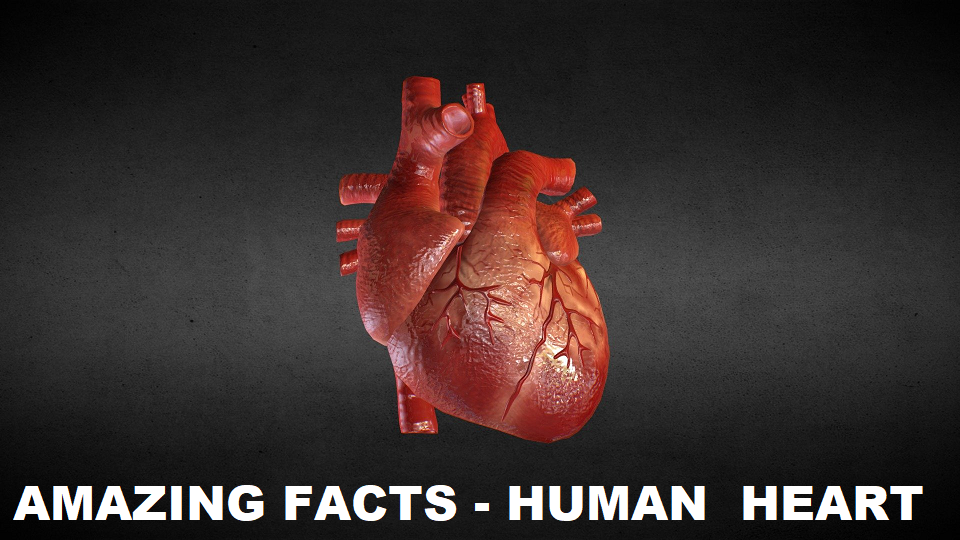Human heart
Posted by Olympiad Tester on

Fact 1: The heart pumps about 2,000 gallons of blood every day.
Fact 2: The heart begins beating four weeks after conception and doesn't stop until death.
Fact 3: Your heart rate can change and mimic the music you listen to.
Fact 4: The heart can continue to beat even when separated from the body because it has its electrical impulse.
Fact 5: The heart's electrical system is so powerful that it can create sparks, which can be seen with the naked eye.
Fact 6: A woman's heart typically beats faster than a man's heart.
Fact 7: Your heart can pump blood through 100,000 miles of blood vessels in less than a minute.
Fact 8: Laughter can increase blood flow by 20%, promoting a healthier heart.
Fact 9: Your heart can continue to beat even if it's separated into two pieces.
Fact 10: The sound of a heartbeat is the "lub-dub" sound made by the heart valves closing.
Fact 11: The heart weighs about 8-10 ounces in men and 6-8 ounces in women.
Fact 12: The heart contracts about 100,000 times a day.
Fact 13: The human heart can beat outside the body if supplied with enough oxygen.
Fact 14: The heart pumps blood to nearly every cell in the body, including itself.
Fact 15: An average person's heart will beat about 2.5 billion times in their lifetime.
Fact 16: The heart starts to beat before the brain is formed in a developing fetus.
Fact 17: The heart is not located on the left side of the chest; it's in the center, with a slight tilt to the left.
Fact 18: A heart attack doesn't always manifest as chest pain; it can also cause discomfort in the arms, back, neck, jaw, or stomach.
Fact 19: A newborn's heart rate is much faster than an adult's, averaging 120-160 beats per minute.
Fact 20: The heart's pacemaker is called the sinoatrial (SA) node.
Fact 21: Your heart pumps about 70-75 milliliters of blood per beat.
Fact 22: Heart disease is the leading cause of death globally.
Fact 23: The heart has its electrical impulses, generated by the heart's pacemaker.
Fact 24: The heart can continue beating even if it is separated from the body, as long as it has an oxygen supply.
Fact 25: Your heart rate can increase when you're scared or excited due to the release of adrenaline.
